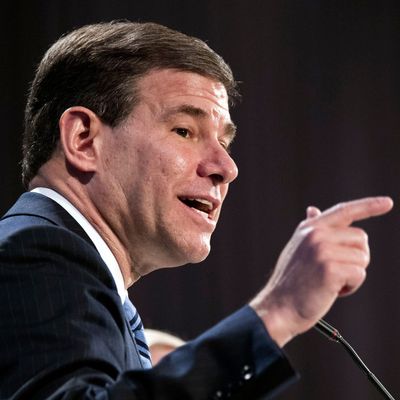
In a case with considerable national significance if Florida is as close in the November presidential election as most observers expect it to be, the 11th Circuit Court of Appeals in a 6-4 decision upheld the state legislature’s efforts to gut a voter-approved constitutional amendment granting most ex-felons voting rights. In doing so, the court overturned an earlier lower-court decision that struck down the GOP-passed law as an unconstitutional “poll tax,” as NPR reported when the U.S. Supreme Court declined to intervene in the case in July:
The GOP-controlled Legislature … sought to limit the effects of the amendment by passing a law that conditioned the right to vote on payment of all fees, fines and restitution that were part of the sentence in each felon’s case. The state, however, had no central listing of this information, and the Legislature created no system to help felons ascertain how much, if anything, they owed. Even the state ultimately agreed that it would take six years to create such a system.
Two felons challenged the law in court and initially won in both the federal district court and the court of appeals. In a second phase of the litigation, Judge Robert Hinkle held an eight-day trial and found that the “overwhelming majority” of felons would be too poor to pay the amounts owed, if they could find out what they owed. Hinkle said that the pay-to-play law had created “an administrative nightmare” and that it also amounted to an unconstitutional tax on voting.
The 11th Circuit put a hold on Hinkle’s ruling earlier this year pending its own review of the case, and SCOTUS declined to overturn the hold. Barring a surprise intervention by SCOTUS to restore the lower-court finding (very unlikely given the disinclination of the Court’s conservative majority to intervene in election law decisions when balloting nears), this means that an estimated 1.4 million ex-felons in Florida will be blocked from voting until the state gets its act together to figure out who owes what to whom.
The decision laid out by 11th Circuit chief judge William Pryor, a well-known conservative firebrand, denied that having to pay fees and fines to vote amounted to a poll tax, arguing that, “Court costs and fees are legitimate parts of a criminal sentence — that is, part of the debt to society that felons must pay for their crimes — there is no basis to regard them as a tax.”
And Pryor brushed away the inability of the people involved to find out what they owe in order to pay it and vote as not the government’s problem, writing that, “The Due Process Clause does not require States to provide individual process to help citizens learn the facts necessary to comply with laws of general application.”
So the Florida Republican scheme to negate the clear intent of a ballot initiative approved by nearly two-thirds of Florida voters is working out just fine, as the complexity of the issue and the apparent fairness of requiring the settlement of financial obligations (fair, that is, if Florida made it possible to identify them) could blunt any public reaction. As a result, since Florida’s disenfranchised citizens disproportionately represent Democratic-leaning minority groups, Republicans will have a thumb on the scale if Florida turns out to be a critical state in November.
It’s another lesson in why federal judicial appointments matter.






























